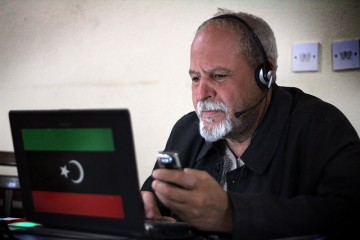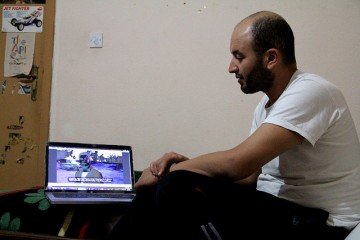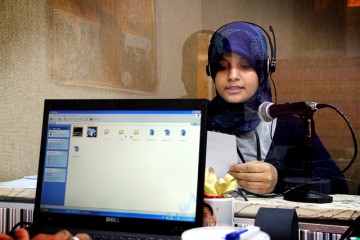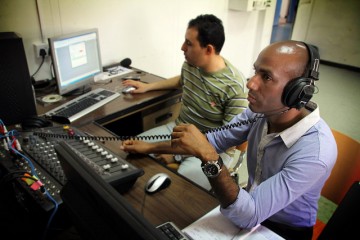Mohammed El Fortia
Media and communications in Libya is often mixed up with the war effort.
Many of the 'media centers' in rebel-controlled Libya act as a military communications hub as well as a media center for local and international journalists -- or something in between.
In Misrata, Mohammed El Fortia (above), the director of Misrata Hospital, prank calls colleagues in Tripoli who are still pro-Gaddafi, through Skype. On this occasion, he requested an ambulance for a nonexistent patient in Tripoli, and when prompted for further information, hassled the telephone attendant about his support for Gaddafi.
"It's psychological warfare," he said.
Faraj Akwador
Across Eastern Libya, youth have relied heavily on the internet for disseminating home-made videos of the conflict. Akwador, pictured, is one of two correspondents for a youth-led online TV station called "Al Hurra" and gives nightly updates on the conflict from Misrata.
"I can take a weapon and fight at the front," he said. "But before the revolution, I was a sports journalist. Why can you see what is happening in Libya? It's because of us."
Above, Akwador shows one of his videos.
Anita El Sullak
Anita El Sullak is a former architect, and like others at Tawasul and Radio Shabab FM, has no background or training in media.
"We want to do this [radio show] to make people more aware, and then build a new Libya," she said.
"In order to do that we need basic awareness," El Sullak said. "We need to work together."
www.internews.org/regions/mena/libya.shtm
Radio to Spread Ideas
"With youth, you can make a fresh start," explained Nizaar Azerbair. "Radio is a cheap way to spread ideas and help build society."
www.internews.org/regions/mena/libya.shtm
Bild: Internews Network




